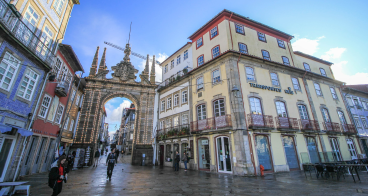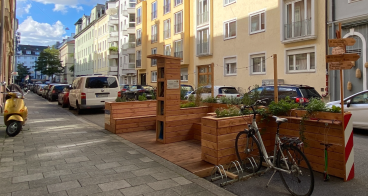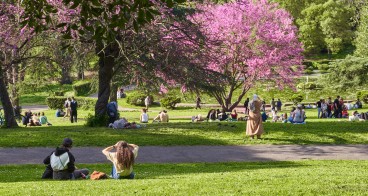Can daily travel make us happy? Undirected trips' impact on well-being
Undirected trips have no specific goal or endpoint - the journey itself is the destination. This is largely enigmatic in understanding travel behaviour, as most focus is instead on trips with clear destinations, like going to work or the shop. However, trips taken for their own sake, like going on a walk or joyride, might be the key to happiness for some, or at the very least offer some benefit to health and well-being, and might be an important aspect of travel behaviour. How much urban infrastructure invites citizens to take such journeys may determine an important part of the liveability of a city!
To understand undirected travel, it's essential to recognise the concept of the positive utility of travel. This refers to the benefits and value that individuals gain from the act of traveling, beyond simply reaching a destination. Travel can be more than a means to an end; it can offer relaxation, opportunities to opt out and clear your head, social interaction, and moments of joy. Undirected travel might be just one way people tap into this positive utility, finding happiness, life satisfaction, and positive emotions along the way.
While many argue that travel time is wasted time, and that reaching the destination as quickly and efficiently as possible should be the only goal, individual preferences are complex, especially when it comes to undirected travel. Some researchers have proposed the idea of a "travel time budget," suggesting that people have an optimal amount of travel time they desire. If they can't achieve it through destination-based travel, undirected trips may provide a compensatory mechanism to fulfil this need.
Undirected travel isn't only about going for a leisurely stroll; it encompasses various activities such as walking, cycling, jogging, or joyriding. It's about the freedom to move without a specific purpose. As such, it has a value that can’t be easily calculated for use in, for instance, cost-benefit analysis which impacts urban planning decisions. Understanding the true benefits of undirected travel can help policymakers allocate resources more effectively, promoting active travel and well-being. Though there weren’t many positive aspects of the COVID-19 pandemic, it was able to provide a perfect test scenario to understand undirected travel and its value. When destinations were closed and there was nothing else to do, many people were driven to participate in travel for its own sake.
What are the motivations?
Research looking into how people were travelling in an undirected manner during this time identified four primary motivations:
- Improving health and well-being: undirected trips offered participants a chance to enhance their mental and physical health.
- Removing negative feelings: many turned to undirected travel as a means to alleviate tension, fear, anger, and hostility.
- Enjoying scenery: the act of travelling allowed individuals to admire landscapes and appreciate nature.
- Out-of-home socialising: undirected trips provided opportunities for social interactions, especially during a time when gatherings were limited.
However, these motivations don’t necessarily apply uniformly to all different types of trips or all different types of people. The research also found that:
- Active modes lead the way: active undirected trips, like walking and cycling, had stronger motivations associated with them compared to motorised modes.
- Multiple modes, multiple fulfilments: taking different undirected trips with different types of modes was more likely to satisfy multiple motivations.
- Distance and duration matter: longer undirected trips, both in terms of distance and duration, were more fulfilling, regardless of the motivation.
- Age matters: older individuals were generally less motivated by undirected travel, possibly due to physical limitations or fear of leaving the house during the pandemic.
- Urbanisation and socialising: urban residents were more motivated by out-of-home socialising, suggesting it's more convenient in densely populated areas.
Implications and Future Research
These findings challenge the notion that travel is merely a means to an end. It highlights the multifaceted motivations behind undirected travel, and its potential to contribute to well-being. Policymakers can use this knowledge to create infrastructure that encourages active travel and undirected travel, which often go hand in hand, benefitting public health and the environment.
In sum, travel for its own sake can be a great strategy for those looking to improve their well-being and satisfaction. As we uncover more about the benefits of travel, and specifically undirected travel, we open the door to a world of possibilities for healthier, more sustainable, and more fulfilling travel experiences.
If you are further interested in the topic, the scientific paper On a road to nowhere…analysing motivations for undirected travel is available for download in the shared files section below.
Find out more about the Urban Mobility Consultancy here.
Published on 3 October, 2023






